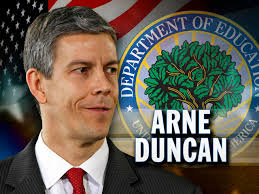Archive for the ‘Indoctrination’ Tag
Guarding the Minds and Hearts of Our Children
By Whitne Strain
As parents desiring to find a proper high school education for our 13 year old son, my husband and I have been researching a prep school in Indiana that shares our values of faith, founders and traditional academics. This school employs the services of the SSAT (Secondary School Admissions Test) exam as most prep schools do. To help my son, I voluntarily took the first practice exam which we purchased directly from SSAT.org.
I labored through the reading comprehension portion, shocked and dismayed. Within the nine essays presented were subjects on racism, an anti-Christian sarcastic dig, environmentalism, class warfare, history revision and collectivism. Any follower of current affairs recognizes these issues as tools of manipulation used by those of the “progressive” ideology. Here is one example:
“Approximately 28 percent of all energy used in the United States is devoted to transportation and of that fraction, 40 percent is supplied in the form of gasoline to fuel the nation’s nearly 255 million registered passenger vehicles. Americans use more energy to fuel their cars than they do for any other single purpose. The fuel used by American automobiles and personal trucks would just about fill all the energy needs of Japan, a nation of over 127 million and the world’s largest consumer of energy after the United States and China. In an urgent effort to reduce consumption of an increasingly costly fuel whose chief reserves lie overseas, the government has RIGHTLY [emphasis added] identified the American automobile and current habits of its utilization as prime targets for change.”
My first thoughts were, “Do any of the teachers and administration of these schools ever read these tests? Isn’t it presumptuous on the part of the creators to include politically charged, behaviorally persuasive essays for children in 8th grade?”
This started me on a journey and here is what I found:
The SSAT board consists of 19 participants who mostly come from private schools across the country. I found that the board chair, Kilian Forgus, is a spokesperson for one of their 2014 annual meeting sponsors, inResonance. On the face of it, I see a financial conflict of interest.
More concerning to me, though, is their keynote speaker, Charles Fadel, Founder and Chairman of CENTER FOR CURRICULUM REDESIGN. On Fadel’s website at www. curriculumredesign.org/about/team/#charles, he is presented as a global education thought leader and expert who was the liaison with UNESCO, the World Bank and Change the Equation (STEM) while the Global Education Lead at Cisco Systems. Of the other six speakers, five had backgrounds in global aspects of culture, trade, demographics, marketing and business . Progressive ideology uses the word “global” freely as a euphemism for ”make everyone the same”. One of the speakers, Amy Wilkinson, recently spoke at a National Governor’s Association meeting, the birthplace of the national institution of Common Core.
Can anyone say CONNECTIONS? Are these the types of philosophies that influence the design of that test? After three hours of research, I stopped for the night, but I can tell you that I’m not done.
Ezra Taft Benson, Secretary of Agriculture for President Dwight D. Eisenhower, speaking at a conference on February 28, 1966 in St. Louis, Missouri had this to say,
“To take over our schools, the educational system will first have to be federalized and then prostituted entirely to serving the propaganda needs of the state planners with absolutely no regard for truth or scholarship or tradition.”
Is this happening today? Is the SSAT just one of many means of prostitution and propaganda? Are the SAT and ACT similar? Who is guarding the minds and hearts of our children?
I ask myself whether it’s worth fighting. The machine is so big. I’m just one mom. But I’ve decided to adopt this statement from Secretary Benson’s same speech: “We must be neither fatalists nor pessimists. We must be realists, of high character and deep spirituality.”
If enough of us see this, we can stop it.
———————————————————————————————————————————
Thank you, Whitne Strain! Parents, please research textbooks and other materials found in schools, soon to be found in our children’s minds. I want to back up Whitne’s perspective with my own recent experience (and encourage all parents and teachers to do this.)
———————————————————————————————————————————-
Is This Curriculum Politically Neutral?
by Christel Swasey
For the past few months I’ve been tutoring some high school students, part time. The students are enrolled in an online, digital school. I’ve been appalled by the online school’s lack of political neutrality and the emphasis on the same types of things Whitne Strain mentioned above: curriculum that is extremely politically charged, an extreme environmental focus, the assumption that global warming is a settled scientific fact (not just in the “environmental science” class but also in English class) and an emphasis on collectivism –along with a de-emphasis, even in the U.S. history class, on our founding fathers.
For example, I read one test question for an environmental science class that went like this (paraphrasing, from memory):
“Which of the following terms best describes an environmental movement that views the rights of the majority of people as more important than the rights of individual property owners? a) environmental law b) environmental justice c) environmental activist d) other”
The question was not teaching science. It was teaching a one-sided political message. It was teaching that the public (the government) could have the right to infringe on individuals’ property rights –maybe for any reason, but at least for environmental reasons. This may be common speech among extreme left-wing politicians –but in school!?
Schools should teach, and used to teach, that all Americans have constitutional rights, including the right and control of their own property. Now it seems that some are teaching that individual, constitutional rights are subservient to environmental socialism.
Tutoring other high school students in their online English classes this summer, I noticed the same extreme left-wing rhetoric. I didn’t write down the questions but recall –for example– many global warming political cartoons popping up multiple times even within one English test. This didn’t seem to match what English classes are supposed to be teaching.
Test questions in this English class took a one-sided stand, making the assumption, for example, that global warming was a settled scientific fact –and that this message belonged in an English class. I asked the online school to take a look at the controversies and debates among scientists in the news to see that global warming is highly controversial, and far from a settled science. I asked them to consider tossing out these inappropriate questions.
Regardless of parents’ own political ideology, I think most would agree that school is not the place for any type of subtle political indoctrination. Just as schools are forbidden from preaching a particular religion, schools must be forbidden from preaching a particular political doctrine.
Parents and teachers, we can’t move a mountain all at once. But we can start by being more aware. We can notice what is being emphasized and re-emphasized, and also notice what isn’t there and should be.
Tell your local and state school boards that you insist on politically neutral curriculum. Look at the curriculum for yourself. You’ll soon dodge anything from Pearson and Microsoft, for example, which together form the world’s largest and most powerful education sales group partnership and which also happen to be working for the United Nations’ Global Education First Initiative. Ask yourself as you read:
- Is it promoting “social justice” (socialism and collectivism over classic Americanism) while teaching math, English, history or science?
- Is it glorifying the politically controversial United Nations and “global citizenship”? (As I noticed years ago that the widely-used Pearson “Human Geography” textbook does)
- Is it pushing minimizing or degrading the American Constitution and founders?
- Does it push environmentalism into every subject, promoting environmental activism as an appropriate or necessary behavior for students? (To get up to speed on this issue, look at minute 4:00 -6:05 on http://youtu.be/T3ErTaP8rTA –the Pearson Education CEA Summit speech. Pearson CEA Sir Michael Barber said “citizens of the world” including every child, “all 9 billion people who will be alive in 2050″ must have all teachings multiplied by “ethical underpinnings.” Barber explains that “ethical underpinning” is “shared understanding” of earth and “sustainability” that every child in every school around the world will learn. Ethics, to Barber, have nothing to do with the supreme sanctity of human life, individual liberty or the Golden Rule. It’s simply education for the environmental collective.)
So, if you see the typical “learning target” which says something like: “Students will understand current global issues and their rights and responsibilities in the interconnected world,” which is a learning target that I recently saw in my own child’s student disclosure– then speak up.
Say that it troubles you, and say why. Speak from the heart.
I recently explained this to one of my children’s teachers, after receiving the above mentioned “learning target”. I said, “Even though we are of Swedish heritage and speak Swedish at home, I have taught my child to be a deeply rooted American citizen, and to avoid teachings that push global citizenship. I’m opposed to the now-popular concept of “global citizenship” in education, because rights and responsibilities as Americans differ dramatically from those held in other countries or those promoted by the U.N., and I don’t want my child to think of himself/herself as subject to global values, laws, or global governance, which allow for fewer freedoms than those guaranteed by the U.S. Constitution.”
If schools do not respect your wishes, take your business (and children) elsewhere: to private schools, to home schools, or to a different public school where the principals and curriculum directors still respect parental research and input.
I’ve never seen a better episode on the Blaze than that April 2013 episode with Rabbi Daniel Lapin. They spoke about collectivism. Some call it Socialism. Others, Consensus or Social Justice. It’s all the same: it’s top-down redistribution, by force.
The collectivism movement has its heartbeat inside education reform. It aims to lure us away from individual worth, individual wealth, individual rights, liberty or having an independent voice, all in the name of consensus, social justice, and collectivism.
In Utah, we have a problem with being too trusting. So many honest people fall into the trap of believing that others must think and behave honestly, too. And they fall into the trap of believing that collectivism or social justice have something to do with compassion.
Jesus warned his followers of this trap.
“I send you forth as as sheep in the midst of wolves: be ye therefore wise as serpents, and harmless as doves.” (Matt. 10:16)
Because the serpents are out there. We have to be smarter than we have been. We have to identify and outsmart the serpents –or we and our children will live without liberty under the collectivist banner of equality. It’s that simple. Right now, it’s called social justice. Proponents of social justice make it sound like compassion, steering clear from the pesky concepts of “individuality” or “freedom” or “local control” that the Founding Fathers bled for.
The U.S. Secretary of Ed., Arne Duncan, says, “Great teaching is about so much more than education; it is a daily fight for social justice.” – Secretary Arne Duncan, October 9, 2009 speech. At an IES research conference, again Duncan said: “The fight for quality education is about so much more than education. It’s a fight for social justice.” – IES research conference, 2009
Social Justice and wealth redistribution are concepts that come up over and over again in Department of Education reports and speeches. They are pervasively being taught in our schools and in teacher colleges.
The current U.S. Equity and Excellence Commission recently served up a report called “For Each And Every Child.” Read it. It aims to redistribute education and wealth. You will actually find these phrases: “allocate resources to level the playing field across states,” “address disparities,” “advancing national equity and excellence goals using a combination of incentives and enforcement,” and “Historically, our approach to local control has often made it difficult to achieve funding adequacy and educational equity.”
It’s down with local control; up with forced redistribution.
Parents must arm their schoolgoing children with truth so that they can be wise as serpents, harmless as doves.
I saw a very wise dove two months ago on t.v. He is Rabbi Daniel Lapin, and the day I heard him speak, he was a guest on the Glenn Beck t.v. show.
The t.v. conversation went like this:
Rabbi Daniel Lapin: Collectivism is, as it’s usually defined, as any kind of political, or social or economic philosophy that stresses our interdependence with one another. You and I agree with that. We couldn’t live without each other. We know that; we understand that.
Glenn Beck: Yeah, no man is an island.
Rabbi Lapin: We get it. That’s not what collectivism really is. What collectivism really is, is a formalized, deliberate structure…deliberate attempt to create a moral matrix to legitimize taking things from one group of people and giving it to another. That’s what collectivism is all about. It’s essentially finding a framework of virtue about stealing.He goes on to say that the “manure” that fertilizes the idea of collectivism is materialism, “the fundamental conviction that nothing that isn’t material matters in the world.”
Glenn Beck: Define materialism. Because in my own head I was thinking it was about having all this great stuff. But you’re talking about that there is no spiritual part of the world, that it is only the material make-up.
Rabbi Lapin: Well… Willie Brown, former mayor of San Francisco, speaker of the California State Assembly… defined materialism.… What he said is, “If I cannot eat it, wear it, drive it, or make love to it, I’m not interested in it.” That’s a pretty good definition of materialism. If I can’t actually see it, touch it, make use of it, exploit it, benefit from it in some way, it doesn’t exist. In other words, there is no such thing as love. There’s no such thing as loyalty. There is no such thing as awe. There’s no such thing as staring at the heavens in wonder or biting into an apple and just wanting to thank somebody for giving that to you. None of that is true, because it’s all just firing of neurons in your cortex and your spinal column. There’s no mystery in life; it is all thoroughly basic and scientific.
…If materialism and collectivism encourages competition about being a bigger victim, what does this [making money] philosophy engender? Competition to provide service. How beautiful is that! It’s figuring out, to recognize that you will succeed best at making money if you are obsessively preoccupied with supplying the needs of your fellow human beings.
Which is better? Making wealth for your use by providing service to others, or requiring wealth from service providers to provide goods and services to someone who did not earn it? Clearly, the answer is making wealth through service is more moral.
But what about those who can’t provide for themselves? The best answer is for those whose love makes them feel responsible for the weaker members of society to provide for them willingly. And where those closest can’t do enough, then the caring larger public of service providers will offer help. I’m more willing to trust that goodness to a people whose goal is to find ways to serve than I am to trust a people who look for ways to take wealth from service providers.
———
The t.v. conversation went on as Rabbi Lapin explained why collectivism is materialism, which sees everything in tangible, ownable terms, and sees nothing in spiritual terms –there’s no love, loyalty, eternity, or other intangibles; collectivism sees a plant or a cow no differently than a human being; it also sees the death of a plant or a cow no differently than the death of a human being. This is why the collectivists want so badly to indoctrinate all people into earth-worship rather than God-worship; because by persuading humans that we are no more important on earth than a plant or a cow, we may more easily give up our rights, our property, our money and our liberty –to the collective, which is of course, controlled and operated by a very few.
Collectivism v. Making Money
Rabbi Lapin provided a powerful chart. It clearly explained how service/capitalism differs from theft/collectivism. Collectivism/Materialism has as its highest virtue, equality; collectivism stimulates envy, creates competition for victimhood, creates an ambition community organized for politics, and results in static poverty. On the other side, the chart explained that Making Money has as its highest virtue, freedom; that captitalism creates competition for service, that it stimulates success and achievement, that it creates ambition for respectability and riches; and that its result is dynamic growth.
It’s pretty simple. But few people know it.
Please make sure your own children understand it.
Our children are now navigating textbooks that preach the opposite of what the Rabbi (and our founding fathers) have said. Increasingly, textbooks teach that the United Nations (collectivism) are more impressive than the United States (individualism/liberty); that local control is overrated, and that environmental concerns outweigh the concerns of the U.S. Constitution. At least my daughter’s Pearson A.P. Geography textbook did. There was a great emphasis on the United Nations and Sustainability and a de-emphasis on actually learning where countries, rivers and mountains are, in that book. It’s just geography, right? No. Everything is changing.
The following is published anonymously to protect the educator(s) who are sharing this information.
“Recently certain teachers were selected to attend Common Core training sessions. We were divided according to subject.
We were subjected to “groupthink.”
We were given an article called “Making the Common Core Come Alive!” It is published by an organization called “Just ASK” and it came from that organization’s October 2012 newsletter. The author of the article is Heather Clayton Kwit, who is the principal of Mendon Center Elementary School in Pittsford Central School District, New York.
The article’s main purpose at the top of the article says COMMON CORE MIND SHIFTS. We had to read part of the article and then answer questions about our “feelings.”
Here are the seven mind shifts we had to read about in the meeting:
1. “The goal of curriculum should not be the coverage of content, but rather the discovery of content.” It goes on to say “If done well, Common Core will elevate our teaching to new heights, and emphasize the construction of meaning, while deepening our understanding of our students.”
2. “A deep understanding of the content to be taught is paramount.”
3. “In our classrooms, it is the students’ voices, not the teachers’, that are heard.”
4. “We are preparing our students to do the work without us.”
5. “We are educating our children for an unknown future.” It also says “these skills can then be translated into new or novel situations, without the teacher needing to guide the work.”
6. “We have a responsibility to help each student reach higher.”
7. “We can’t ignore the evidence before us.” It goes on to say the standards were created using an extensive body of evidence.
The concluding paragraph says, “In conclusion, we have the innate ability to change our mindset if it no longer helps us accomplish our goals. Our current beliefs are grounded in the prior knowledge we’ve gained through our administrative and teaching experiences, our lives as students, and our collaboration with educators. Our beliefs impact all that we do, how we act and react, and the potential we see in others. When we can successfully shift our mindset, we are ready to form new lines of thinking and abandon old habits. By doing so, we have successfully positioned ourselves to do the work required by the Common Core.”
Here are the seven questions we had to answer in writing about our feelings about each mind shift (NOTE: these questions were created by OUR system):
1. How would you explain the differences between the discovery of content and the coverage of content?
2. How would you describe the payoff for teachers who demonstrate deep and flexible understanding of the content to be taught?
3. What do you see as the role of the teacher and the students in a classroom filled predominately with student talk?
4. What benefits to you see for students as we begin to teach them to do the work without us?
5. Why would it be important for teachers to shift their thinking about the purpose and method of their practice as they work with students?
6. How will the standards support teachers as they meet the needs of both fragile and accelerated learners?
7. As outlined in this section of the text, what do you see as important pieces of evidence that can’t be ignored? Why should this evidence be considered valuable.
As you can see, this is what teachers are dealing with. So right now, these “reading coaches” from elementary schools are training teachers to be Common Core people in their schools. [Someone] stated that next year our system hopes to fund 19 Common Core IP’s (Instructional Partners). Some of these 19 will be from the “reading coaches” in elementary schools and some will be selected from the secondary level.
Probably, the people who “shift their minds” the best will be the ones selected.”
– – – – – – – – – – – –
Thank you to the educator(s) who shared this information with us anonymously here.
 My fourth grader saw this poster. He asked me what a carbon footprint was.
My fourth grader saw this poster. He asked me what a carbon footprint was.
I told him that some scientists think carbon hurts our earth, while other scientists say that is not actually true. Some people think that the government wants to tax people so much that they use, as an excuse, the idea of carbon footprints. They will tax people more if they do an activity that increases carbon on earth.
I told him that I have not studied it enough yet to have an opinion of my own. I do not know which scientists are closer to the truth, but because it’s not settled, schools should not be teaching it as if it were a fact.
And people should not be hanging posters like this where children will see and assume one side of the argument is the only true side.
This anecdote is just a forward to the reason I’m writing today. The original reason is this link:
https://docs.google.com/viewer?a=v&q=cache:leMYpC7VZ40J:www.chesapeakebay.net/channel_files/18256/affiliate_update_-_epa_region_3_sub-award.ppt+&hl=en&gl=us&pid=bl&srcid=ADGEEShjVUlWcJ_QXczKpqycvtgsx_sH58TXfd0eCMafK1wcpvSaEm7OTOcXyrpPqStPJYlzNnDHe6H1Kf4XX6KAb4T_K00Fr_QiX922VCkZtSlVJT28EroJEG3Vg3M10doX6XVAI-XF&sig=AHIEtbSOtdWRC-f4oItTEg-l-pnCSdDCTQ
Thanks to the Missouri Education Watchdogs publicizing it, here: http://www.missourieducationwatchdog.com/2012/12/wading-into-standards-weeds.html
If you click on that top link, you’ll find a powerpoint presentation entitled: “EPA Region 3 Sub-Award Update.”
So what?
EPA means Environmental Protection Agency. And Region 3 refers to a region –not a state– that the US Dept. of Education is now recognizing (moving away from the concept of states which can be such a pesky reminder of Constitutional rights). “Sub-Award update” means that money is being accounted for, having been awarded by the federal government to “region 3” to alter local education to align with EPA goals –rather than previously held academic priorities for schools, which were previously determined by local entities like school boards and principals.

Yes, it’s creepy. It is propaganda, pure and simple. And the head of all public schools in our country, Arne Duncan, has promised us he’s going to push for more and more of it.

US Sec. of Education Arne Duncan announced, “Education plays a vital role in the sustainability movement… education must be part of the solution… This week’s sustainability summit represents the first time that the Department is… educating the next generation of green citizens and preparing them to contribute to the workforce through green jobs… Educators have a central role in this… teach students about how the climate is changing… explain the science behind climate change and how we can change our daily practices…. prepar[e] students for jobs in the green economy… the Department of Education hasn’t been doing enough in the sustainability movement. Today, I promise you that we will be a committed partner…”

You’re kidding, right, Arne? You are saying that you will use schools to promote green propaganda despite the fact that millions of scientists, teachers, students and parents don’t believe a word of the “global warming” and “climate change” science?
“http://www.ed.gov/news/speeches/greening-department-education-secretary-duncans-remarks-sustainability-summit
Not only is he not kidding, he’s now paying the EPA to “align” with Common Core.
Link: https://docs.google.com/viewer?a=v&q=cache:leMYpC7VZ40J:www.chesapeakebay.net/channel_files/18256/affiliate_update_-_epa_region_3_sub-award.ppt+&hl=en&gl=us&pid=bl&srcid=ADGEEShjVUlWcJ_QXczKpqycvtgsx_sH58TXfd0eCMafK1wcpvSaEm7OTOcXyrpPqStPJYlzNnDHe6H1Kf4XX6KAb4T_K00Fr_QiX922VCkZtSlVJT28EroJEG3Vg3M10doX6XVAI-XF&sig=AHIEtbSOtdWRC-f4oItTEg-l-pnCSdDCTQ


It’s interesting that “Green Schools” are being promoted by the U.S. Department of Education. On the surface, greening schools sounds a little bit boring but not bad. Students learn wonders like “turn off the lights when you leave the room” and “eat healthy food”.
But along with that, they also learn things that are not science, not high-quality, uncontroversial, settled science. Teachers are being told to teach sustainable propaganda and call it science. Controversial points will be taught as if they were absolutes. It goes against the whole spirit of what education is about: students are not told to weigh information, study empirical evidence from many sources, and judge truth from fiction, fact from opinion.
They are just told that the sustainablility movement is true.
Schools will get grants if they push the green curriculum.
And teachers better teach it.


Here’s a link to the full text of the United Nations’ Agenda 21 global transformation plan: http://habitat.igc.org/agenda21/index.html
I take particular interest in these three chapters: 25, 24, and 36, as a teacher and as a mother.
Chapter 25 – the one about children: http://habitat.igc.org/agenda21/a21-25.htm
Chapter 24- the one about girls: http://habitat.igc.org/agenda21/a21-24.htm
Chapter 36- the one about education: http://habitat.igc.org/agenda21/a21-36.htm
If you are new to governmentspeak, you won’t see many red flags. It’s not until you slow down and really think about what they are writing (and not writing) that you begin to see how twisted this Agenda 21 really is.
Two examples:
From Chapter 25: “Ensure access for all youth to all types of education… ensure that education… incorporates the concepts of environmental awareness and sustainable development throughout the curricula…”
Did you catch that? Throughout curricula, that means in every single class– spelling, grammar, science, English, math, history, technology, art, languages, sports, student government, debate, home economics, and the rest– students must be learning environmental awareness and sustainable development? Does that not strike you as dogmatic- almost crazy?

Also from Chapter 25: ” Consider…recommendations of… youth conferences and other forums that offer youth perspectives.”
–On first reading, that sounds fine, right? Listening to young people. What could possibly be wrong with it?
Well, look up “Delphi Technique” when you have some time on your hands.

There are sustainability youth “conferences” happening right now that are clearly little more than the globalists’ politically motivated indoctrination camps.
After youth spend time “dialoging” about environmental issues –where the dialogue is being controlled by Agenda 21 activist facilitators– those facilitators will take the youth recommendations back to headquarters. Nice. Here’a a link to such a youth conference. All 14-year-olds and up are cordially invited to be totally immersed in the green, anti-sovereignty, anti-constitution, pro-collectivism, pro-communist, environmental agenda: http://www.agenda21now.org/index.php?section=home
It should not be creeping into our schools. But it is.
Teachers are being taught to teach sustainable development across the curricula.

The U.S. Department of Education is pushing it. http://www.ed.gov/news/speeches/greening-department-education-secretary-duncans-remarks-sustainability-summit
Secretary Duncan says in the above linked speech, “Educators have a central role in this… They teach students about how the climate is changing. They explain the science behind climate change and how we can change our daily practices to help save the planet. They have a role in preparing students for jobs in the green economy. Historically, the Department of Education hasn’t been doing enough in the sustainability movement. Today, I promise you that we will be a committed partner.”
And here: http://unesdoc.unesco.org/images/0014/001433/143370e.pdf Unesco promotes “Guidelines and Recommendations for Reorienting Teacher Education to Address Sustainability”

It’s obvious that teachers are being pushed in the direction of Agenda 21 without knowing it’s a political agenda. The Agenda 21 tenets, such as the supposed importance of limiting human reproduction, of limiting building, sports or recreational activities that touch grass, oceans or trees; of limiting airplane and car use, or of believing that there is human made global warming, are not settled facts among scientific communities (or in religious ones, for that matter.) Yet teachers are supposed to teach them as settled facts, as doctrine.

Please have the courage to say no if you are a teacher, a school board member, a principal, or a parent.
Even if you happen to believe in the tenets of Agenda 21, such as global warming, population control, or putting plants above or equal with humans’ needs, do you believe that all children should be subject to these teachings, regardless of what their parents or teachers or churches believe?
Shouldn’t a child be taught to weigh competing theories and judge empirical evidence for his/herself, rather than accepting a dogma blindly? Isn’t that what education is supposed to mean?

Yukon College Professor Bob Jickling’s article on this subject is worth reading: “Why I Don’t Want my Children to be Educated for Sustainable Development”
Link here:
https://whatiscommoncore.wordpress.com/2012/08/03/green-propaganda-does-not-belong-in-schools-yukon-college-professor-explains/

Teaching Channel: Comic Books for Common Core.
The Dissident Professor, Mary Grabar, analyses “Comic Books for Common Core,” https://www.teachingchannel.org/videos/teaching-nonfiction-entry-points a Teaching Channel video.
The professor disagrees that teaches should be taught how to persuade students that the abandonment of fiction, and classic literature, is good. She disagrees with Common Core’s race toward informational texts for very profound reasons– and I agree! Read it, read it.
The Dissident Professor explains how and why the move toward only using informational texts to teach the English language is a move toward indoctrination.

Just pasting some recent tweets from Sir Michael Barber, the Chief Education Advisor for Pearson. (FYI, Pearson is one of the big corporate groups getting rich from implementing Common Core.)
Sir Michael Barber is all about one-world indoctrination.
Check him out. He talks about revolution. He talks about gun control and U.S. politics. He quotes someone talking about ending the “promised land” of Jerusalem and turning it into a place that belongs to everyone, not to Jews. He talks about the environment. And he talks about education reform as if everyone knew what he means by the term. And most don’t.
His definiton of education reform means a one-world, top-down, global education with an emphasis away from academics and sovereignty and toward environmentalism and collectivism. IS THIS NOT CREEPY TO YOU?


 Sir Michael Barber@MichaelBarber9
Sir Michael Barber@MichaelBarber9 Pearson plc@pearsonplc
Pearson plc@pearsonplc Katelyn Donnelly@krdonnelly
Katelyn Donnelly@krdonnelly BBC Radio 4@BBCRadio4
BBC Radio 4@BBCRadio4